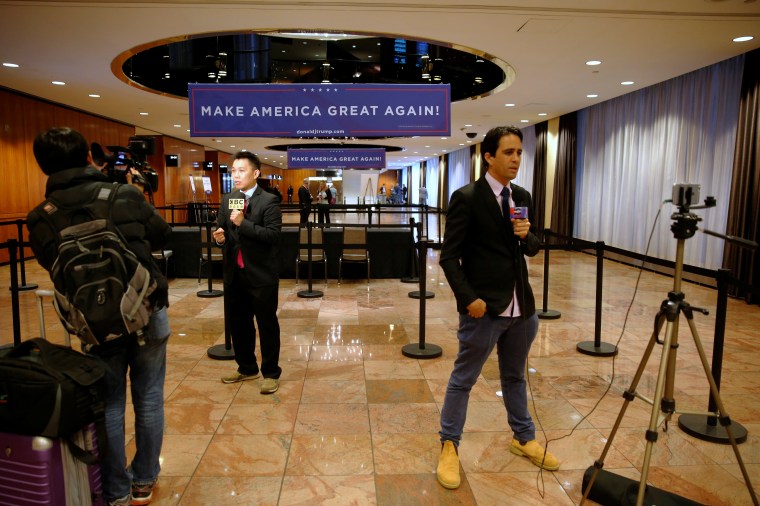We hadn’t even finished unpacking our belongings from my assignment in Africa when the phone rang. It was a fellow journalist warning me that the director of Israel’s Government Press Office had just gone on national radio to say he intended to summon me to complain about a story.
My wife looked at me anxiously. Would this mean I would be kicked out of Israel within just weeks of taking up my assignment as Reuters bureau chief? Her fear was well founded. In some of the countries we had worked in Asia and Africa, this level of public scolding was often a prelude to a one-way ride to the airport.
It won’t happen here, I reasoned. Not on the eve of the first Gulf War. Israel needs its greatest ally, the United States. And the U.S. defends a free press.
And so it proved. I got a public dressing down but that was it. I went on to stay seven years in Jerusalem, never once fearing that my journalist work visa would not be renewed.
Like many of the foreign correspondents I knew, I had extremely mixed feelings about U.S. foreign policy, but one thing was sure. Washington defended press freedom abroad and welcomed overseas reporters at home. That gave it a certain moral authority.
Now, worryingly, that standing is under threat from a Trump administration proposal to slash the time foreign journalists can stay on U.S. soil and to increase scrutiny of their output.
The proposal is buried in a bunch of bureaucratese restricting the stay of academics and exchange students, among others, and was barely reported when it appeared last month.
But this week the Committee to Protect Journalists along with 35 media organizations joined an initiative of the Reporters Committee for Freedom of the Press to protest the move.
We wrote to the Department of Homeland Security (DHS) pointing to the pitfalls of its plan to shorten the time foreign correspondents are permitted to work in the United States from five years to just eight months.
The Department graciously added, almost as an afterthought, that the eight-month visa could be extended for another 240 days subject to review.
The implications of changing the validity of visas and the review process are chilling. The move will impact the personal and professional lives of foreign journalists and possibly invite similarly restrictive moves by authoritarian governments around the world that are only too glad to cite the United States as a pretext for administrative measures designed to curb unfavorable media coverage.
First, no foreign news organization is going to invest in sending a correspondent to Washington for 240 days. The ‘packages’ reporters receive for working abroad are definitely nothing like as generous as when I was on the road. But it still costs a small fortune to maintain foreign correspondents, especially if they have families, with airfares, rent, school fees, health insurance and so on.
Restricting the duration of visas would mean many smaller overseas news organizations would likely employ U.S. citizens or permanent residents and send in reporters only for short-term assignments. That would rob audiences of the outsider’s insight into the United States. Foreign reporters who live in a country and learn its language and culture provide a perspective that native reporters don’t have. But it takes time to build expertise, certainly more than 240 days.
Second, the process for a visa extension relies on the logic beloved of authoritarian regimes – we will allow you to report on us as long as we like what you report.
The DHS, that sprawling agency responsible for everything from migrants in cages on the Mexican border to prying into arriving journalists’ phones at airports and border crossings, would have the power to review “the content that the foreign information media representative is covering in the United States.”
The ‘content’ here could well be about the DHS itself. What better way to engender self-censorship among foreign journalists who have uprooted their lives to come to the United States and want to stay another eight months?
And third, what message does all this send abroad? The glow of the United States as a beacon for press freedom has been dimming for years. The latest move will enable those tyrannical regimes to further tighten already strict controls on journalists’ movements and access to information, whether through visitor visas for short-term reporting trips or longer-term resident visas.
Look no further than the tit-for-tat restrictions on foreign reporters this year between China and the White House to see the havoc a race to the bottom over visas can wreak. Washington cannot defend reporters and advocate for their access to information overseas if it doesn’t live up to its lofty free press freedom principles in its own backyard.
If the Trump administration remains in power after November 3, we will have a fight on our hands.
If a new administration takes over, we can’t just assume these proposed restrictions will die of neglect. We’ll need to eliminate them.
